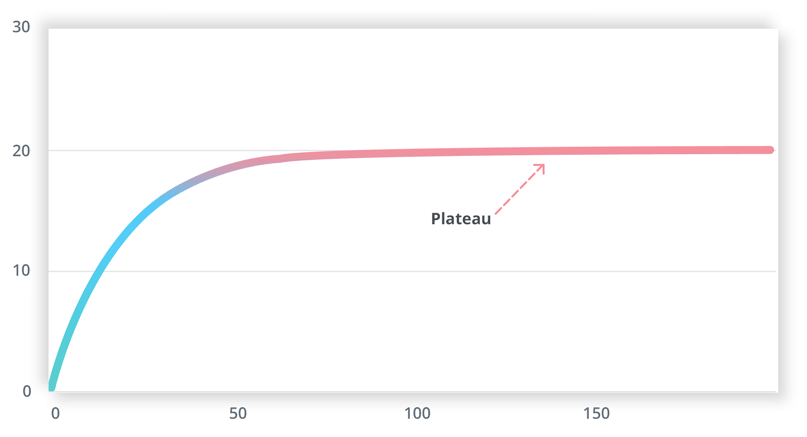
The Ozempic Plateau Effect
Semaglutide, marketed as Ozempic, has garnered significant attention as a promising treatment for type 2 diabetes. This glucagon-like peptide-1 (GLP-1) receptor agonist has demonstrated remarkable efficacy in lowering blood sugar levels, promoting weight loss, and reducing cardiovascular risks. However, like many medications, Ozempic’s effects can sometimes plateau, leading to concerns and questions about its long-term effectiveness. In this article, we will delve into the reasons behind the plateau effect of Ozempic (Semaglutide), exploring the dynamics of this phenomenon and when we can expect it to subside.
Understanding the Plateau Effect
The plateau effect refers to a scenario where the benefits or impacts of a medication, in this case, Ozempic (Semaglutide), seem to level off over time. Patients may initially experience rapid improvements in blood glucose control, weight loss, and other metabolic parameters, but these improvements may eventually slow down or even appear to halt altogether. This phenomenon can be disheartening for both patients and healthcare providers, but it’s essential to understand the underlying reasons.
Causes of Plateau
Adaptive Response: When a person starts taking Ozempic (Semaglutide), the body might initially respond more robustly to the medication. However, over time, the body’s response may become more regulated and less sensitive to the medication’s effects. This is similar to the phenomenon observed with other medications and even dietary interventions.
Hormonal Regulation: Ozempic (Semaglutide) influences the release of insulin and glucagon, which play key roles in glucose regulation. The body’s hormonal systems may adapt to the constant presence of Semaglutide, leading to a reduction in its effects. This is part of the body’s natural tendency to maintain homeostasis.
Beta Cell Function: Ozempic (Semaglutide) can stimulate insulin secretion from pancreatic beta cells. However, over time, the beta cells might experience strain due to sustained high demands for insulin secretion. This could potentially lead to a reduction in the effectiveness of Semaglutide in stimulating insulin release.
Dynamics of the Plateau Effect
The plateau effect of Ozempic (Semaglutide) is not an abrupt process but rather a gradual one. Patients often experience significant improvements in blood sugar control, weight loss, and other markers initially. As time goes on, these improvements may slow down. This gradual decline is often a sign that the body is adjusting to the medication’s presence.
While the plateau effect might seem like a setback, it’s crucial to recognize that it doesn’t mean the medication is no longer beneficial. The subsiding of the plateau effect can vary from person to person and depends on several factors:
Dosage Adjustment: In some cases, a healthcare provider might recommend adjusting the dosage of Ozempic (Semaglutide) to counteract the plateau effect. Increasing the dose could help regain some of the lost efficacy.
Lifestyle Modifications: Combining Ozempic (Semaglutide) treatment with lifestyle changes such as dietary adjustments and regular physical activity can help mitigate the plateau effect. These modifications can enhance the medication’s effectiveness and prolong its benefits.
Time: Patience is key. Just as the body gradually adapted to the medication’s presence, it may also gradually overcome the plateau effect. Some individuals might experience renewed improvements after a period of stabilization.
Combination Therapy: In certain cases, healthcare providers might consider combining Ozempic (Semaglutide) with other medications to enhance its effects. Combination therapy can provide a synergistic effect and counteract the plateau.
Final Thoughts
The plateau effect observed with Ozempic (Semaglutide) is a complex interplay between the body’s adaptation mechanisms and the medication’s mode of action. While it can be concerning, especially for patients seeking continuous improvements, understanding the causes and dynamics of this phenomenon is crucial. By working closely with healthcare providers, making appropriate dosage adjustments, incorporating lifestyle modifications, and giving the body time, patients can often overcome the plateau effect and continue to benefit from the positive effects of Ozempic (Semaglutide) on their diabetes management journey.
